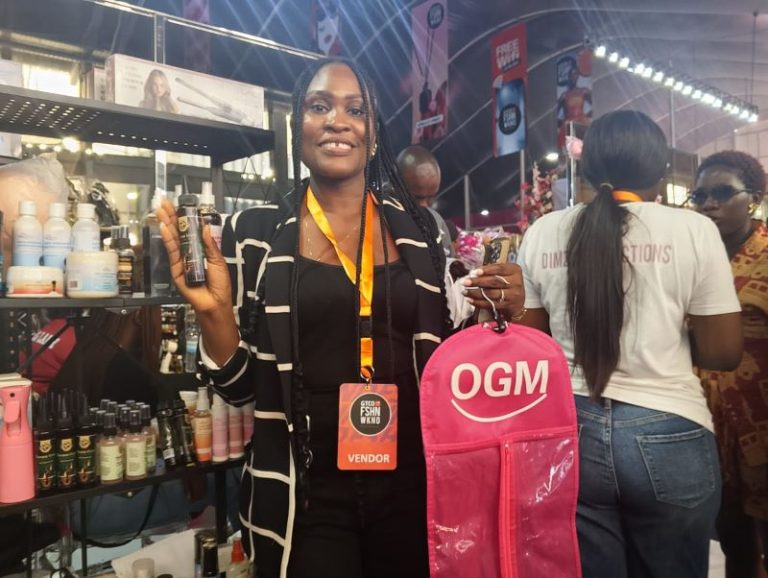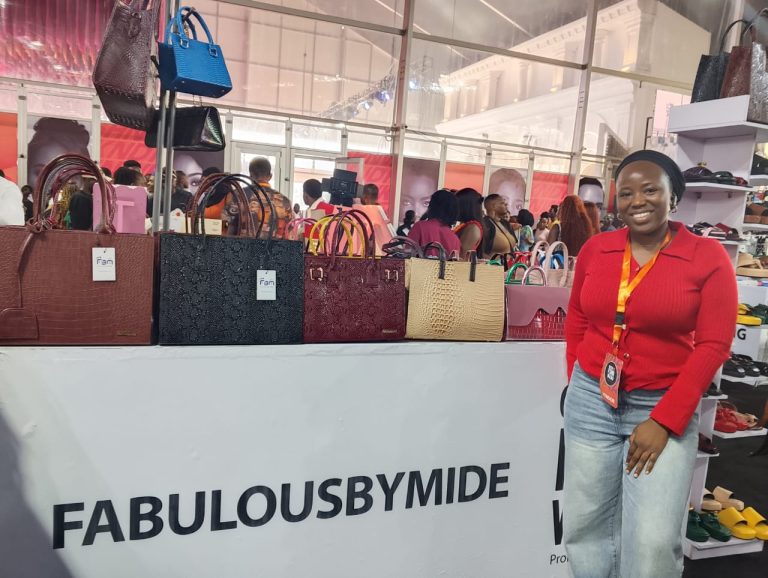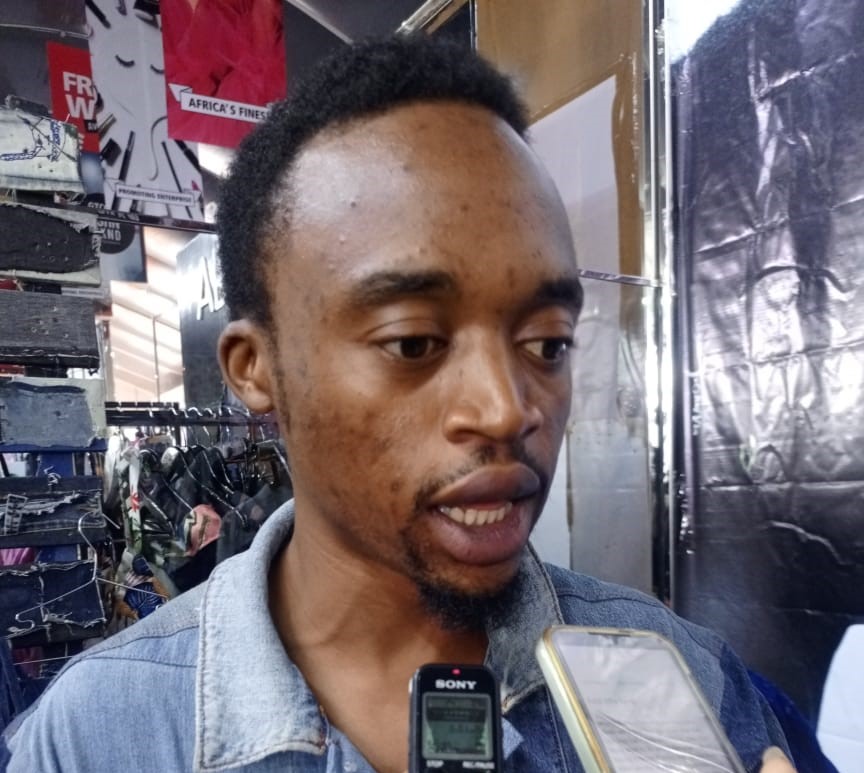
By Okosun Dennis
The 7th edition of GTCO Fashion Weekend presented a rare opportunity for some small-scale business entrepreneurs to showcase their merchandise and penetrate the growing business climate despite the economic predicament and inflationary trends affecting the ease of business.
Despite the gamut of business obstacles, removal of petroleum subsidy, poor electricity supply and other impediments, the ingenuity and creative mindset of some Nigerian fashion designers have lifted them into business Elderado, with the thinking that forging ahead and creating opportunities will give them an edge over any debilitating shortcomings.
Uche Aladimma, the Creative Director of AZACH, was such a revelation that would continue to resonate, with stunning business enthusiasts that throng Plot 1, Water Corporation Drive, Oniru, Lagos during the two-day GTCO Fashion Weekend.
AZACH deals with old jeans, transforming “discarded Demin to timeless pieces” with the slogan: “Look Good, Feel Good, Do Good.” In this exclusive interview, he explained to Okosun Dennis, how AZACH is leading the way into sustainable fashion, passionately championing upcycling to minimize environmental impact.
AZACH is a brand dedicated to eco-conscious choices but also contributes to repurposing clothing sourced from second-hand retailers, giving new life to items that might otherwise go unsold into comfortable and fitting dress sense.
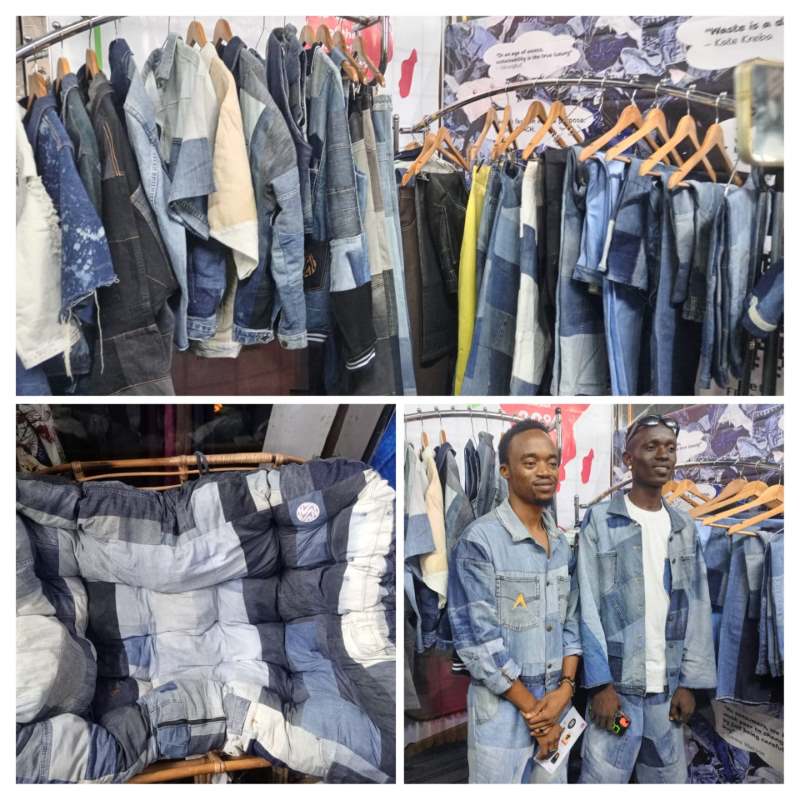
“We source our material from second-hand sellers, the ones they put down and cannot sell it, especially those that have issues that customers can’t buy,” Aladimma spoke passionately.
According to him, getting the materials is one thing but transforming them is where much is required from us as a company. “Once we get this material, we have our process. Wash them, then we cut them into the desired design that we are going for. We do a lot of bad work and blend them, making sure that at the end of it all, they are still very good-looking aesthetically.
A lot of recycling business is going on today across the globe but the thought of sourcing for old jeans and transforming them, perhaps, could have been the least concession. However, “I got inspiration from my childhood. I’ve always taken my clothes to the tailor to help me extend it. I’ll give them material to add, so people like what I was doing.
“Then, that was how someone asked to go and check what recycling means. So, when I saw the impact that cycling is having in fashion considering we all know, there’s a lot of waste in fashion. I saw that upcycling is reducing waste in fashion. Having discovered it, I became intentional about upcycling and went through scales.
On the categories of the age group, he caters for, Aladimma gave further insight. “Our product caters to both the needs of younger and older generations – those that love fashion, Gen Z’s fashionistas, and also the older generation that are concerned about the environment; that knows what the dangers of waste fashion is causing to the environment.
“So, those kinds of customers, the eco-friendly and conscious customers, we also have products for them.
Speaking on the cost-effectiveness of getting their products, he reiterated that they buy all their products. In terms of cost implications, “It’s more expensive. The production cost is more than the normal, regular fashion that we do. A lot of processes that go into what we do.
“We know they are secondhand fabrics; we have to clean, disinfect them and make sure they are fit to wear, and try as much as possible to make sure that they look new. When you buy them, it doesn’t look like secondhand fabric here and you can see them, they all look like a new fabric. Essentially, the cost is more than the regular fashion.
On customer’s resentment when they realized that they are made from old fabrics, Aladimma noted, “Yes, they see that first, they don’t know it is old fabrics until we tell them the process, and how we come about it. But we try as much as possible not to make the cloth look like old fabric.
“Even though they are old fabric, it should still look new. I’m competing with the kind of products in the market. Make good quality products, even when you buy and wear them regularly, you can still wear them for as long as you want.”
Despite the doting challenges, AZACH creative Director, Aladimma further revealed business has been good. “In terms of cutting edge and business opportunities, it has been good because we discovered that a lot of our customers – those that are aware of the kind of fashion we do and their environmental impacts – they are here when they see what we are doing, it’s not hard to tell them what we are doing and the impact of the kind of fashion that we are doing.
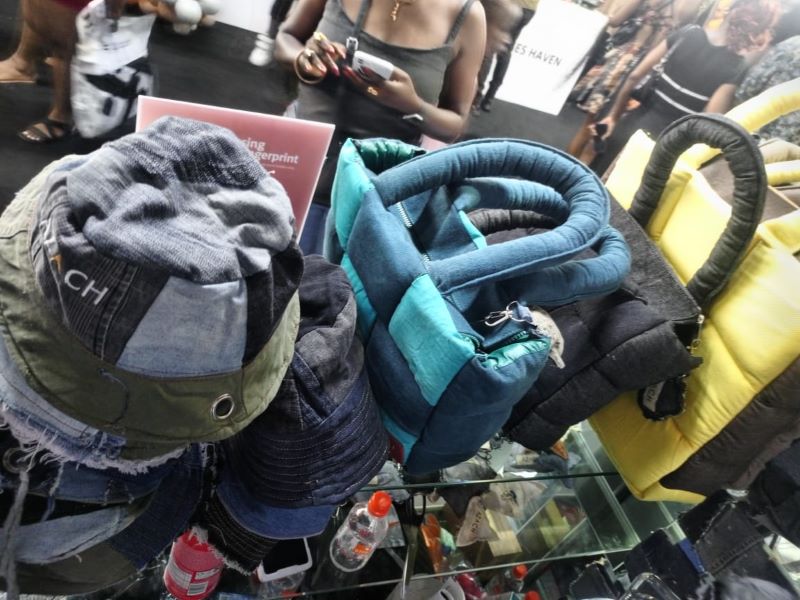
“So, the sales reception has been amazing. Even with the connection, we’ve gotten a lot of people that we are going to collaborate with after this event.
Without relish, Uche Aladimma spoke his mind addressing the present government to create a favourable business environment as entrepreneurs have been facing terrible and uncertain business environments that have negatively impacted them thereby reducing their profit maximization.
“I think for ease of doing business is to give younger people, the opportunity like GTCO Fashion Weekend is a very good opportunity for a small business like this. The space is free and this event has gone a long way in enhancing my business personally, and the connection it brings to bear. Imperatively, if we have more avenues like this; more opportunities where they can incubate young talents – we have a lot of young talents in Nigeria – outside the funding, the exposure, the mentorship, they don’t have it.
“These are some of the things the government can do, creating more young vendors like me.
Aladimma ventured into this line of business with AZACH about two years ago in a commercial capacity. “It’s something I’ve been doing when I was younger, but consciously, I’ve been doing it officially for two years now. We started in 2022.”
AZACH prioritizes quality craftsmanship, resulting in durable and timeless pieces. AZACH is concerned about investing in products designed to last, reducing the need for frequent replacements, and aligning with a circular economy.


